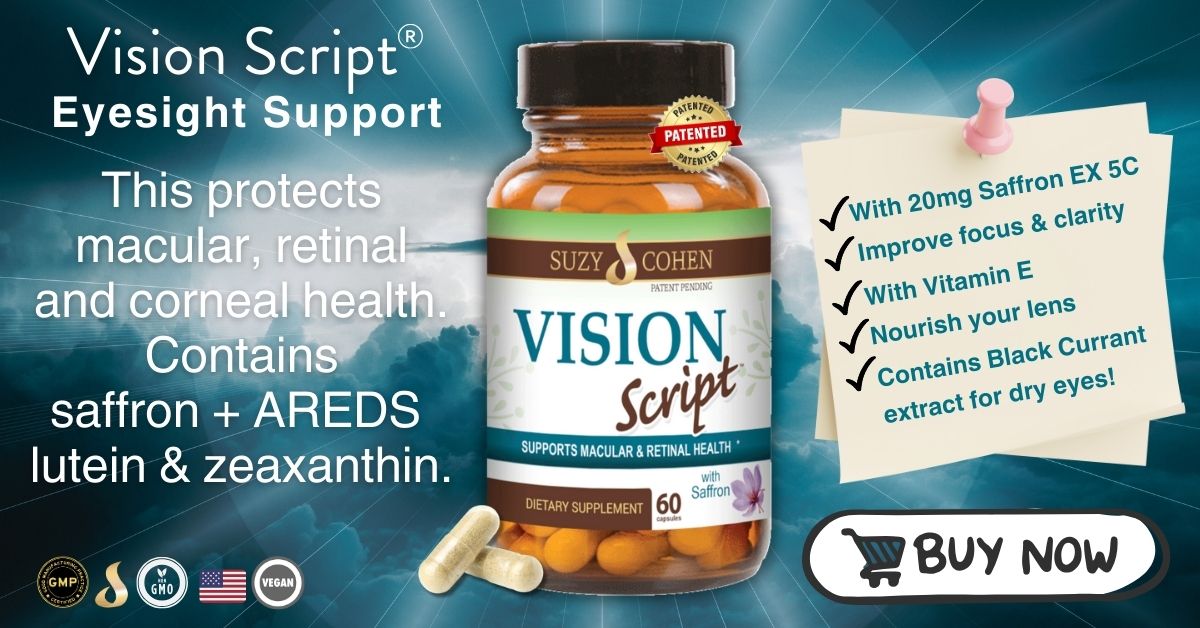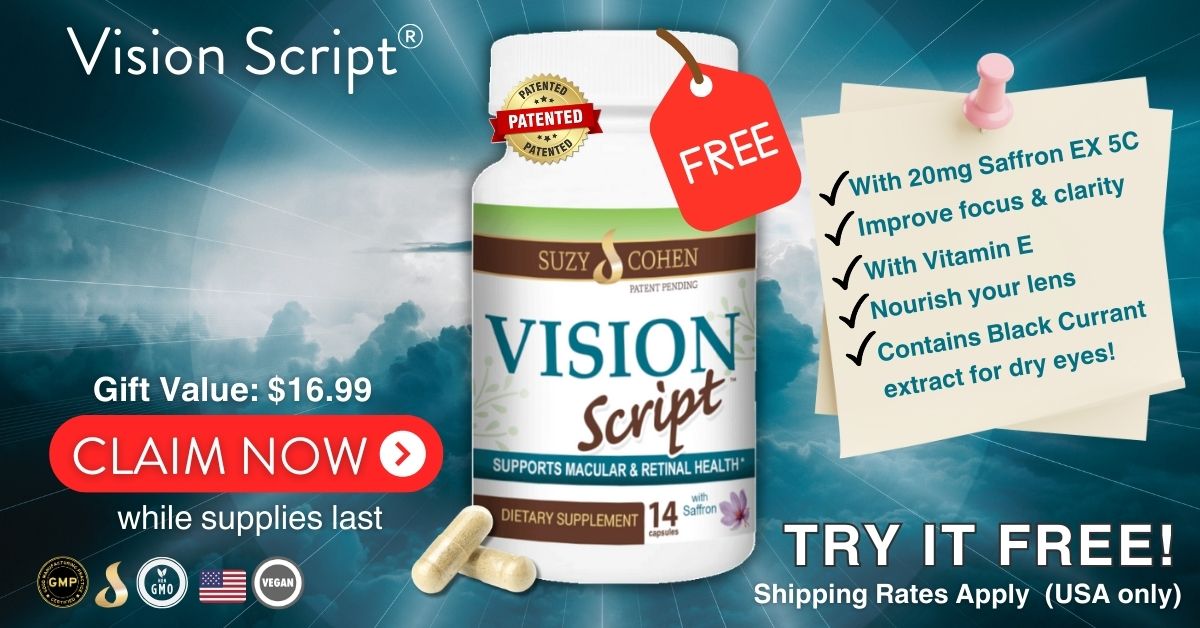If you’ve ever cooked using saffron spice, you know that this unique spice is flavorful and aromatic. For me, saffron is a must-have for dishes such as plain rice (or paella), soups such as chicken soup or bouillabaisse and certain bread/pastries. The active medicinal compounds in saffron come from a tiny part of the flower, not from a bulb, or the leaves like other herbs. The painstaking labor required for harvesting it by hand makes the price of saffron extremely high. That’s why it has not been studied for very many human diseases the way we study other less expensive herbs such as rosemary, turmeric, garlic or sage.
Specific components of saffron spice have demonstrated benefits in several eye ailments. These diseases that saffron has been studied for include age-related macular degeneration (ARMD), glaucoma, and cataracts. Let’s focus on ARMD today.
Age-related macular degeneration may lead to blindness, especially among persons over 65. The eye disease occurs gradually and with little to no warning. It begins with a loss of central vision, and may eventually progress to total blindness. We know that breakdown of the macula occurs, but researchers are not sure why. The macula is next to the retina. Obviously, reversing the progressive condition would be the dream scenario, but halting it would suffice.
Recent research indicates that oxidative damage is a culprit in ARMD. Studies on saffron suggest it offers protection against oxidative damage in patients with early ARMD. It is not a cure for the condition. It’s an antioxidant.* First, it is essential to note that, to date, conventional medicine has found no way of restoring vision lost to ARMD. Treatments such as prescription drugs and laser surgery may slow the progression of ARMD.
So if an herb can augment your current protocol, I’d have a conversation with your ophthalmologist about it. Here are three reasons why:
1. Saffron contains many different constituents including crocin and crocetin. These have shown neuroprotective properties for the eye in multiple double-blind, placebo-controlled studies.
2. Saffron contains potent antioxidant capabilities, meaning they neutralize those troublesome free radicals that attack the cells of your retina and the macula (which is in the center of the retina).
3. A double-blind, placebo-controlled trial offers unconscious bias information. Two of these types of studies have produced information about saffron that is impossible to ignore. In one trial (using their proprietary form of Saffron from France), patients who supplemented for 3 months with low-dose saffron (20 mg/day) experienced improvements in retinal sensitivity, color perception, and visual contrast.* When the trial was extended over a year, the participants experienced even more benefits in terms of increased visual acuity! The data was from The Journal of Translational Medicine. And a different study published in 2014 journal called Visual Neuroscience concluded this:
“In conclusion, saffron treatment appears able to cope with the
degenerative progression of AMD. Although the ways of action are
still under investigation it seems reasonable to conclude that saffron
components are able to reduce photoreceptor death and preserve
visual function.”
What else?
We know saffron can improve a low mood, and now it appears that oral saffron supplementation may partially reverse the damage to visual perception. No one is claiming that saffron cures ARMD, but the benefits are pretty crisp! Even a modest improvement in eyesight is a big deal to many people because it can greatly improve quality of life. Please ask your doctor if it’s right for you. You can cook with saffron as a spice. Saffron teas, supplements and extracts are available nationwide.
Here are some other articles that might interest you:
Blindness Caused by Junk Food
Skullcap Root – An Intriguing Chinese Botanical
Protect Eyesight

Suzy Cohen, has been a licensed pharmacist for over 30 years and believes the best approach to chronic illness is a combination of natural medicine and conventional. She founded her own dietary supplement company specializing in custom-formulas, some of which have patents. With a special focus on functional medicine, thyroid health and drug nutrient depletion, Suzy is the author of several related books including Thyroid Healthy, Drug Muggers, Diabetes Without Drugs, and a nationally syndicated column.



